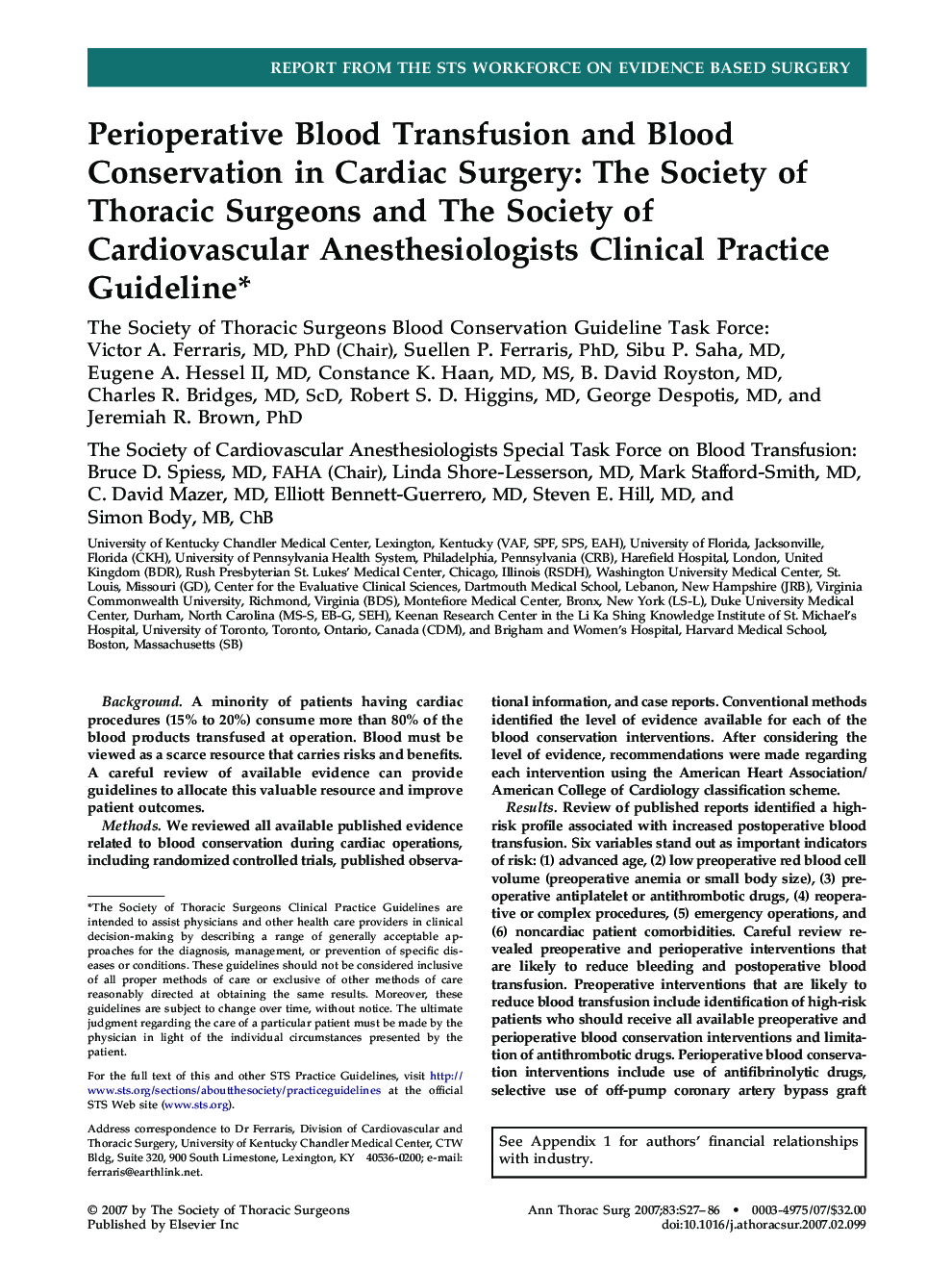| Article ID | Journal | Published Year | Pages | File Type |
|---|---|---|---|---|
| 2881917 | The Annals of Thoracic Surgery | 2007 | 60 Pages |
Abstract
Based on available evidence, institution-specific protocols should screen for high-risk patients, as blood conservation interventions are likely to be most productive for this high-risk subset. Available evidence-based blood conservation techniques include (1) drugs that increase preoperative blood volume (eg, erythropoietin) or decrease postoperative bleeding (eg, antifibrinolytics), (2) devices that conserve blood (eg, intraoperative blood salvage and blood sparing interventions), (3) interventions that protect the patient's own blood from the stress of operation (eg, autologous predonation and normovolemic hemodilution), (4) consensus, institution-specific blood transfusion algorithms supplemented with point-of-care testing, and most importantly, (5) a multimodality approach to blood conservation combining all of the above.
Keywords
ACCRCTLMWHPEEPDDAVPTXANIHGPiADPACTSCAEPOAHASTSOPCABMUFEACACPBASACUFTQMadenosine diphosphateRandomized controlled trialerythropoietinAmerican Society of AnesthesiologistsSociety of Cardiovascular AnesthesiologistsAmerican Heart AssociationANHmodified ultrafiltrationepsilon-aminocaproic acidcardiopulmonary bypassICUintensive care unitTranexamic acidThe Society of Thoracic SurgeonsCoronary artery bypass graft surgeryCABGoff-pump coronary artery bypassDesmopressin acetateactivated clotting timePositive end-expiratory pressureNIH, National Institutes of Healthtotal quality managementAcute Normovolemic Hemodilutionlow-molecular-weight heparinhuman immunodeficiency virusHIVAmerican College of Cardiology
Related Topics
Health Sciences
Medicine and Dentistry
Cardiology and Cardiovascular Medicine
Authors
The Society of Thoracic Surgeons Blood Conservation Guideline Task Force The Society of Thoracic Surgeons Blood Conservation Guideline Task Force, Victor A. MD, PhD (Chair), Suellen P. PhD, Sibu P. MD, Eugene A. MD, Constance K. MD, MS, B. David MD,
